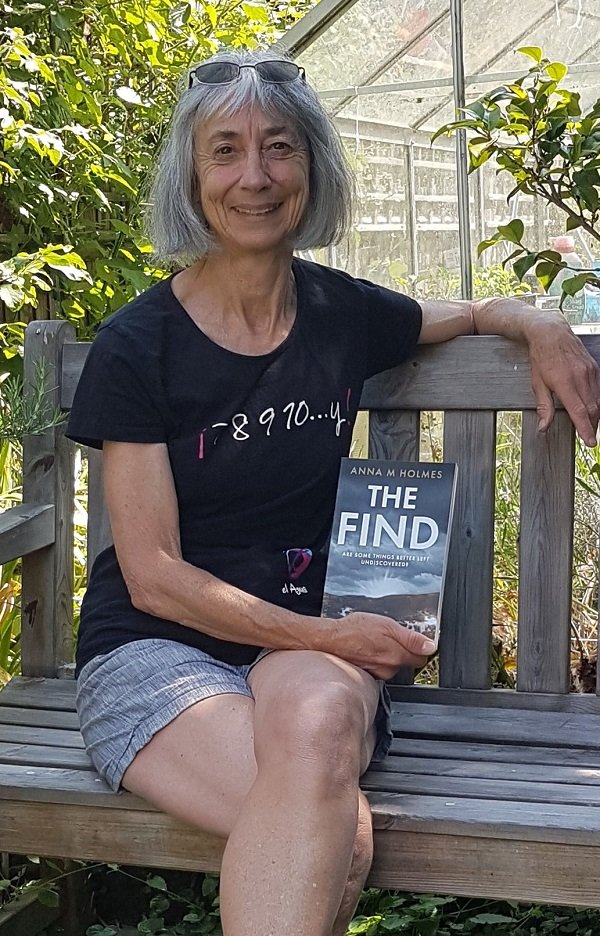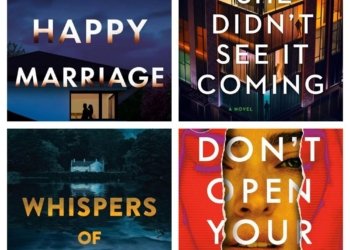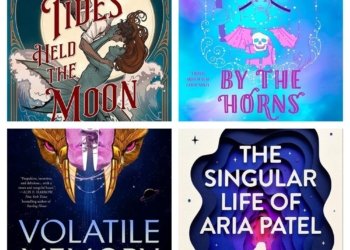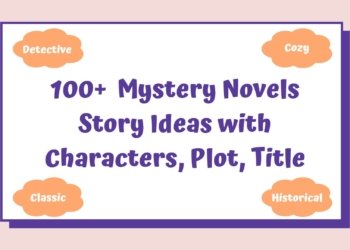No products in the cart.
A Conversation with Anna M Holmes, a Contemporary Fiction, Thriller Author
Anna M Holmes is originally from New Zealand and lives in the UK with her Dutch partner. She loves writing big-themed stories as page-turners.
155
SHARES2.1k
VIEWSStories with big themes written as page-turners are Anna M Holmes’s speciality. She loves research – exploring and building worlds and complex characters. The Find is her latest novel following Wayward Voyage and Blind Eye. Initially she worked as a radio journalist before a career in arts management working with UK Arts Councils and as a creative producer. Writing, reading, dance, and yoga shape her life. Originally from New Zealand Anna lives in South-West London.
She holds a Humanities B.A, a post-graduate diploma in Journalism and an M.A. in Dance Studies. Initially she worked as a radio journalist before a career in arts management working as a specialist dance & theatre officer with UK Arts Councils, as an independent producer, and ran a dance development agency.
Let’s get started with a quick rapid fire.

Q1. If you could be transformed into one mythological creature, which one would you choose?
A small pesky gremlin.
Q2. What time do you usually go to bed at night?
About 11pm. Try and read till closer to midnight. Usually fail.
Q3. What are the least-likely three words someone would use to describe you?
Lazy. Pushover. Snowflake.
Q4. Where did you go on your last vacation?
Bali (partner had a conference), then on to Melbourne (son lives there). Did you know a herd of kangaroos is called a mob?
Q5. Would you rather find your dream job or win the lottery? You can’t do both.
I have my dream job – writing – so lottery as I have a screenplay I’d love to see realised.
Q6. What is one thing you regret spending money on?
Occasionally I think I’ll never get those hours back/money back having gone to a movie or theatre I’ve not enjoyed.
Q7. What object do you misplace or lose the most?
Glasses. I’ve different pairs for different purposes. Always in the wrong place.
Q8. If you were a spy, what would be your codename?
I’ll be Sea Vixen. It was a title I played with for my novel about pirate Anne Bonny before settling for Wayward Voyage.
Q9. What secret about the universe would you most want to learn?
I love awesome images of deep space. We humans are SO insignificant. How interesting to discover some form of life exists.
Q10. What never fails to make you laugh?
Annie Proulx’s black humour short stories. Christopher Guest mockumentaries. Noah Baumbach and Wes Anderson movies. I like ensemble films that are unconventional.
Q11. What was one “before” and “after” in your life?
Early 1980s meeting my Dutch partner in the UK. At the time I was planning to return to New Zealand where I grew up. Never happened.
Q12. What do you think people misunderstand about you?
Constructive criticism. For years as an arts manager and reviewer I analysised live performance. I apply this scrutiny to my writing and as a beta reader.
It’s time for a more detailed conversation, Anna.
You’ve answered our rapid fire so well, Anna. Now, it’s time for our readers to know more about the person behind the book.
Q. Tell us about your journey.
Connecting with audiences has been part of my life from broadcast journalism, choreography/dance; arts management; writing. I recall, aged around 10, filling notebook after notebook with a story about kids putting on a play. Fast forward some decades when I decided to rewrite an unproduced screenplay as a novel. How I loved it! Now I can’t stop building pretend worlds.
Q. So, what books have you read more than once in your life?
These are some: Middlemarch; Pride & Prejudice; To Kill a Mockingbird; The Golden Notebook; Prayer for Owen Meany. Now I tend not to reread as my TBR list is so long. Here are authors I enjoy: Amor Towles, Annie Proulx, Anthony Doerr, Fredrik Backman, David Mitchell, Hilary Mantel.
Q. Interesting. Who has been the biggest supporter of your writing?
My partner is a critical first reader. The Find was his idea. He was ill and I think his brain was feverish. When he told me the concept I said, “good idea, write it down”. We researched The Find together, with him keen to read new sections to see how I was germinating and encouraging that story-seed to grow. It felt a little like Stephen King’s Misery, with me afraid of unsettling my number one fan!
Q. Do you hide any secrets in your books that only a few people will find?
I like to use names of friends in minor parts, and for sure I incorporate traits or mannerisms of people I know. And these aren’t always complementary. And I guess I leave a trace of myself on the pages.

Q. Now comes the most anticipated question that every author must answer. How do you process and deal with negative book reviews?
I’m analytical. The flip side of Rapid Fire question 11 means I am curious to learn know why a reader didn’t like a book. Goodreads reviews for my three novels show one low rating (for Blind Eye). I am disappointed the reader didn’t leave a review saying, ‘I disliked this book because…’ Then it would be useful for other readers, and I would know what hadn’t floated her boat. Be honest without being mean.
Q. What comes first for you — the plot or the characters — and why?
I keep track of both. My spreadsheets and note-books get filled with timelines, plot outlines, and notes and nibbles about main character characteristics.
Each of my three novels has been a different genre (historical fiction, eco-thriller, contemporary fiction) requiring different approaches to structure, plot and developing characters. My WIP is an historical novel.
Q. How do you develop your plot and characters?
I look at the overall arc of the story I want to tell, from opening to ending. I had fun with The Find structuring it in a way that spirals into a central point then out again. (Opening and closing chapters are titled The Bog.)
Research is vital. I always have specialists check my work. With The Find, a bog body expert advised on the science. I visited key locations in Dublin, e.g. The national Archeological Museum, and even decided which suburbs main characters lived in.
Q. You got 100 points. You need to divide them on the basis of how relevant and important they are to you as a reader and a writer for your book or someone else’s as a reader. Your options are Plot/Story, Book Cover, Marketing, and, Reviews.
Plot/story 30
Dialogue 30
Book cover 15
Marketing 10
Reviews 15

Q. So, now, about your book. Talk to us about it. No major spoilers.
I love writing big-themed stories as page turners. The Find is a high concept story asking the reader to consider “What if…!’” and whether science alone can explain the world we live in.
Plot outline: When human remains are retrieved from deep in an Irish peat bog the questions begin. Piecing together the growing evidence, Carrie O’Neill, a bog body specialist, endeavours to make sense of all she learns about The Find. But are some things better left undiscovered?
Q. What part of the book did you enjoy the most while writing?
The story is about ripples and consequences that spread. It was fun researching widely, developing voices of characters who have a vested interest in the discovery: Carrie, the museum’s bog body scientist; Finn, a journalist; politicians etc.
Q. What is your kryptonite as a writer?
I don’t want to be put in a box. I love exploring different genres. This means, from a marketing point of view, I’m not aiming for one strand of reader. E.g. of historical fiction or thrillers. Readers, I hope, will be interested in my style of writing that sits between commercial and literary fiction.
Q. Would you and your main character get along in real life?
I made Carrie a New Zealander, so yes, we’d have a lot to chat about as that country is where I grew up. My partner came up with the name, Caroline O’Neill, but there was no reason she had to be from Ireland (where the story is set). There was so much I had to learn about bog body science and mull over philosophical questions that I wanted a main character who would ground me. Carrie does that.
Q. What risks have you taken with your writing that have paid off?
I write big-themed stories, that require a lot of research. With some anxiety, I have passed draft manuscripts to professionals who know the world I’m depicting, and I love that they are willing to advise me and endorse my work. It means much to me that they recognize the world I have created and become caught up in the story-telling.
Q. Let’s talk about the process of writing. Do you do research while writing a book to add more authenticity? What kind of research?
Research is my middle name. For Wayward Voyage, my historical fiction about women pirates, I crewed a tall ship between the Canary Islands learning to handle rope and go aloft. I read a lot, visited the National Archives in London, travelled to North and South Carolina to scout out where Anne Bonny first lived.
Q. What was your hardest scene to write?
I cried writing a death scene of a character I was fond of. That or sex scenes. I remember laughing my head off when one of my son’s (on reading a manuscript) indignantly messaged me saying he never expected to read a sex scene written by his mother, and next time to please warn him. Reader, it was mild. Even characters deserve privacy.
Q. Well, this has been great. Now, before we wrap this up, do you have any suggestions to help someone become a better writer? If so, what are they?
Writers must be avid readers. Read a lot and read variously. Writing is about rewriting. Get a first draft down, put it aside, then look at it again with an analytical eye. Repeat. Write. Rewrite.
Related Posts
10 Most Anticipated Thriller Books of Summer 2025
Summer is just around the corner, and with it comes an exciting lineup of thrilling reads that will keep you...
8 Most Anticipated Science Fiction and Fantasy of Summer 2025
As summer 2025 approaches, the literary landscape is buzzing with excitement for an array of upcoming science fiction and fantasy...
8 Must Read Books of June 2025
As June 2025 approaches, the literary world is buzzing with excitement, and it’s the perfect time to dive into some...
100+ Mystery Story Ideas to overcome your writer’s block in June 2025 with Plot and Characters
Welcome to the ultimate playground for mystery writers! If you’ve ever found yourself staring at a blank page, desperate for...
About Us

Trenzle
Where Trends are made and discovered
Trenzle is your official source of discovering the latest people, work, and ideas that deserve to trend. Discover Authors and their books, Creators and their work, People and their opinions, and Stories from around the globe.
Learn more
Latest Posts
10 Most Anticipated Thriller Books of Summer 2025
July 10, 2025
Categories
© 2023 Trenzle - Online Author News & Magazine










